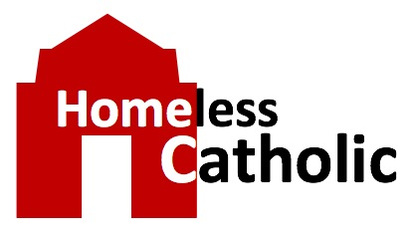Collateral damage
The question which came to mind as I was reading this passage was the same as Abraham’s question a few centuries earlier: ‘Will you indeed destroy the righteous with the wicked?’
Judging from the negations which followed God’s judgment on Sodom, the answer would appear to be, ‘yes.’
Image by WikiImages
Reflection - Collateral
By Steve Hall
https://bible.usccb.org/bible/readings/071622.cfm
Micah 2:1-5
Matthew 12:14-21
In the book of Genesis we read the story of two infamous cities: Sodom and Gomor’rah. Their fate is well known and scientists of today even have a working hypothesis on how God brought about their destruction. What is less well known are the negotiations that went on between Abraham and God regarding the fate of the two cities’ citizens.
After God had informed Abraham of his intention “Abraham drew near [to God], and said, ‘Will you indeed destroy the righteous with the wicked?’“ (Genesis 18:23) He then suggested that God should relent if fifty righteous men could be found. God agreed. But then Abraham proceeded to argue that God should defer his punishment if there were only forty righteous men, then thirty, then twenty, then ten. Ultimately, ten was the agreed number; but ten could not be found.
This incident of Abraham and Sodom and Gomor’rah came to mind while reading the passage from Micah. So did the term ‘collateral damage. So now, fast forward to the time of the prophet, Micah and the reading for today.
The text from Micah is clear, as is the attitude of the Lord.
“Woe to those who plan iniquity,
and work out evil on their couches.
They covet fields, and seize them;
houses, and they take them;
They cheat an owner of his house,
a man of his inheritance.”
Thus says the LORD:
Behold, I am planning against this race an evil
from which you shall not withdraw your necks.”
(Micah 2:1-3)
The question which came to mind as I was reading this passage was the same as Abraham’s question a few centuries earlier: ‘Will you indeed destroy the righteous with the wicked?’ Judging from the negations which followed God’s judgment on Sodom, the answer would appear to be ‘yes’, even though Abraham had successfully bargained for a very low number.
Furthermore, even though Abraham was offered an alternative (leave town with the righteous before it’s too late), such did not happen in Micah’s day. It would appear that the fate of the righteous was to be considered collateral damage.
So now we must fast forward once again; this time to our present age and the moral corruption of our time. For those who bother to accept and follow the two Testaments and our Savior, Jesus Christ, the ‘yes’ which Abraham received (and which Micah didn’t even bother to ask about) might be unsettling. Our preference would be to do our best and let other’s do or not do theirs, and to assume that each person will be dealt with separately. But that simply leads us to Jesus’ parable where the enemy has scattered weeds among the wheat.
The solution Jesus’ offers in the parable is simple: “‘Let both grow together until the harvest; and at harvest time I will tell the reapers, Gather the weeds first and bind them in bundles to be burned, but gather the wheat into my barn.'" (Matthew 13:30)
The prophets of doom for our time suggest a new world order, the collapse of the dollar, the environmental demise of earth, a civil war for the USA, and so forth. Since the lack of righteous men does not appear on their particular agenda, we might reasonably assume that the affairs of men are utmost in their minds. In that context it is apparent that the evil and the good are understood to live side by side, much as it has always been.
One would suppose that we must just live, as did the wheat, accompanied by the wicked, or the weeds. That’s not entirely the case. God may choose to let wheat and weeds flourish together, but it’s not because he’s indifferent to the problem. Rather, it’s because the victory of his Son, the victory over sin and death, has changed the precepts by which the world is governed. A new King has established his throne and the law has reverted to it’s ancient fundamental instruction: love God, love your neighbor.
The weeds are indeed present, but they are not there for us to ignore. While God may allow weeds and wheat to grow side by side, that is not his intention for us. We are here to assist in the transformation of the world. Recall the ultimate outcome as described by Paul.
“For in him all the fulness of God was pleased to dwell, and through him to reconcile to himself all things, whether on earth or in heaven, making peace by the blood of his cross.” (Colossians 1:19-20)
We can be part of that reconciliation between God and man, changing weeds to wheat. Or . . . We can just let the weeds grow. In the latter case the harvest will be more disruptive, more difficult, more painful for all and we will probably find it harder to deal with the collateral damage.

